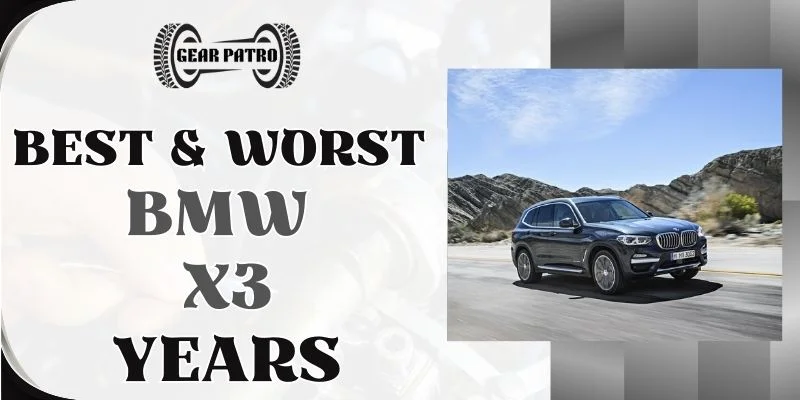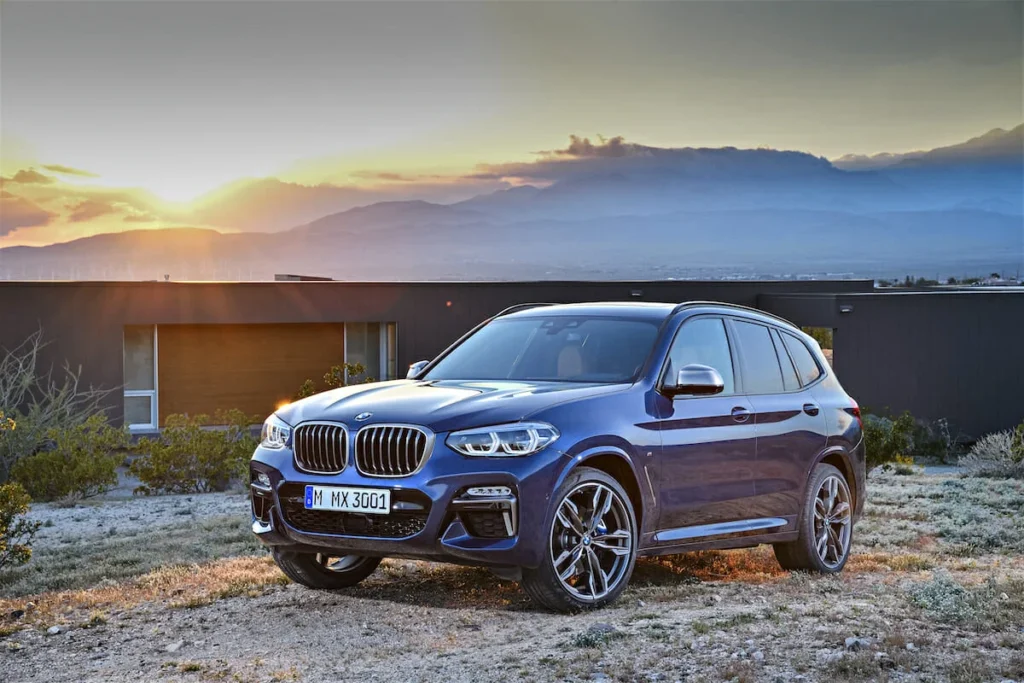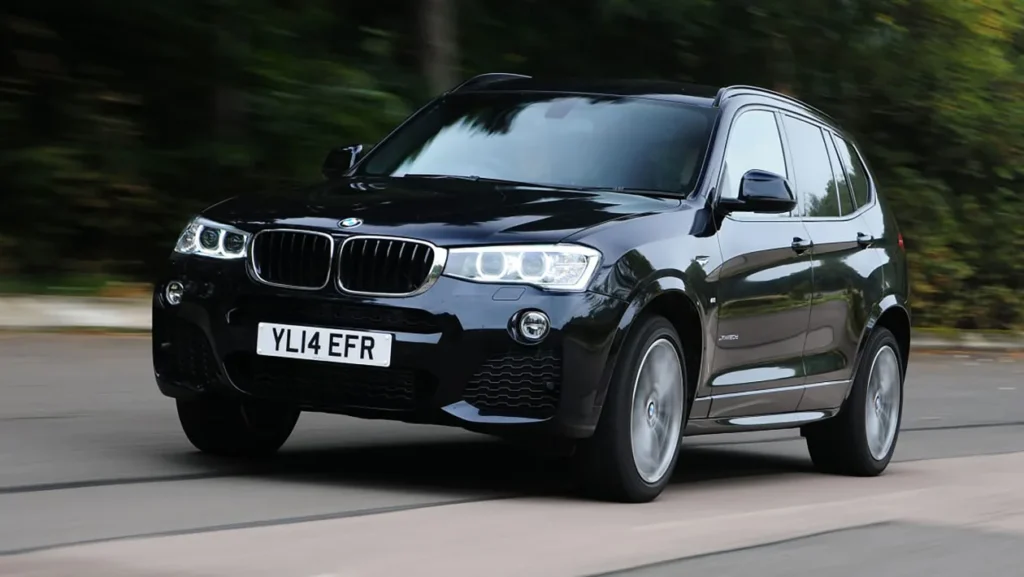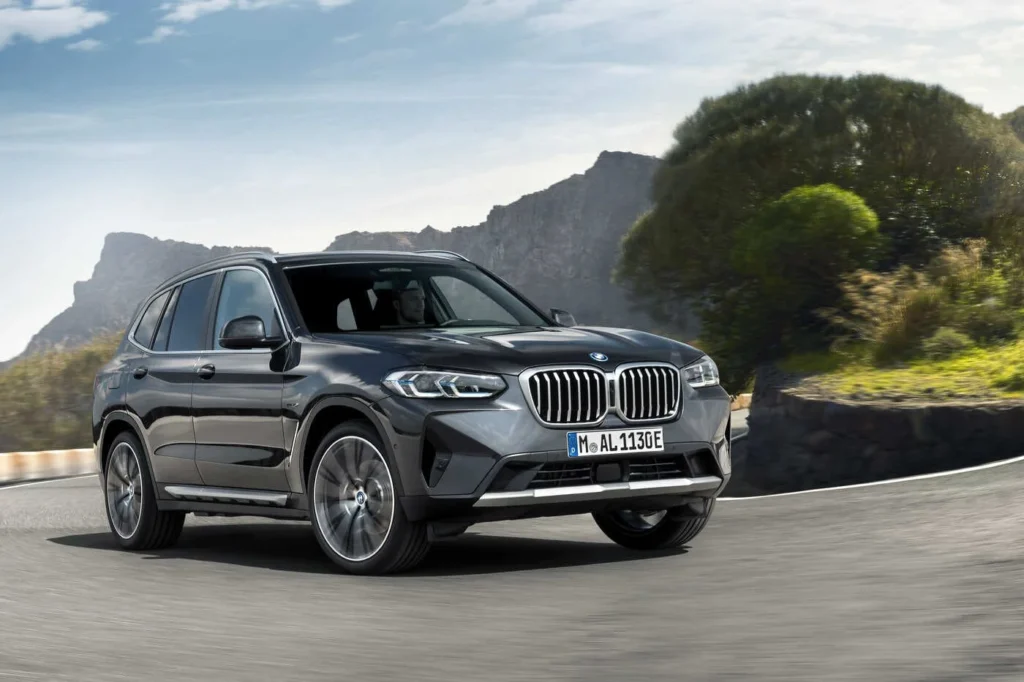For every model year of the BMW X3, we’ve ranked the best and worst BMW X3 models so you can avoid buying the worst.
This guide will reveal which BMW X3 generation you should buy, and which BMW X3 generation you should avoid.
On the basis of reliable sources, such as the NHTSA and Consumer Reports, I will provide a comprehensive overview of the X3’s performance, safety, and reliability.

You’ll learn more about the BMW X3’s performance, reliability, common problems, and recall history, helping you determine the best and worst years of the vehicle.
Come on, let’s get started!
BMW X3 Generations
It quickly gained a reputation as one of the leading luxury compact SUVs in the market following its introduction in 2004.
For those seeking both luxury and practicality, the BMW X3 is an ideal combination of BMW’s renowned performance and handling.
An overview of the different generation BMW X3s can be found in the table below.
| Generation | Years |
| 1st Generation (E83) | 2004-2010 |
| 2nd Generation (F25) | 2011-2017 |
| 3rd Generation (G01) | 2018-Present |
When selecting a model year, buyers can consider a number of features and improvements that can play a significant role in their decision.
BMW X3 Best, Neutral, and Worst Years
We consider a wide range of factors when ranking and categorizing BMW X3’s best and worst years in each generation, including:
A clear and concise overview of all BMW X3 model years has also been provided by categorizing them into best, neutral, and worst.
| Generation | Best Years | Neutral Years | Worst Years |
| 1st Generation (E83) | 2004 2005 2009 2010 | N/A | 2006 2007 2008 |
| 2nd Generation (F25) | 2015 2016 2017 | 20112012 | 2013 2014 |
| 3rd Generation (G01) | 2021 2022 2023 2024 | N/A | 2018 2019 2020 |
As a result, ‘neutral years’ are typically characterized by average reliability and performance.
The reliability rating of a vehicle is negatively affected by some factors, like NHTSA recalls. There is typically a correlation between higher numbers of complaints and recalls and lower reliability.
We’ll now take a look at BMW X3’s best, neutral, and worst years.
Best & Worst Years for BMW X3 1st Generation (2004-2010)
With the introduction of the BMW X3, a new segment of luxury compact SUVs had been established. As an SUV that features advanced technology, a comfortable interior, and capable engine options, it offered the driving dynamics of a BMW with the practicality of an SUV.

You should avoid buying BMW X3s from 2006 to 2008, while 2004, 2005, 2009, and 2010 are the best years to buy.
The Best Years: 2004, 2005, 2009, 2010
It was only during 2004, 2005, 2009, and 2010 that the first-generation BMW X3 was at its peak.
A variety of engine options were available, including 2.5L and 3.0L N52 I6 engines. These engines were distinguished by smooth power delivery and reasonable fuel economy, averaging 16-18 city/23-27 highway mpg.
There was a panoramic sunroof and BMW’s iDrive system on the 2004 and 2005 BMW X3 models, among other safety features.
The reliability of these cars was generally praised during these years, despite some minor headlight issues and heated seats.
Although there was a recall related to camshaft timing bolts on the 2010 BMW X3, it was noted for its new interior and technology features.
The Worst Years: 2006, 2007, 2008
BMW X3 models manufactured from 2006-2008 experienced more significant problems. Those model years of the BMW X3 should be avoided at all costs.
A number of problems were reported, including electrical problems which affected the headlights and power steering, occupant detection sensor problems, and door lock actuator problems.
Especially prevalent in 2007 and 2008 BMW X3 models were engine and transmission issues, such as hesitation and rough shifting.
In addition, these models were recalled for defective occupant detection mats in the front passenger seats, as well as overheating risks from PCV valve heaters.
BMW X3 model years 2006, 2007, and 2008 suffered from electrical, mechanical, and safety problems, and the associated higher maintenance costs made them less reliable.
BMW X3 complaints and recalls from the NHTSA from 2006, 2007, and 2008.
Best & Worst Years for BMW X3 2nd Generation (2011-2017)
In 2011, the BMW X3 entered its second generation, bringing enhanced luxury, performance, and technology.
Among the second-generation BMW X3 models, 2015-2016 are the best years to buy, while 2013 and 2014 should be avoided like the plague.

The Best Years: 2015, 2016, 2017
Is there a best X3 to buy? According to our research, the BMW X3’s best and most reliable years were 2015, 2016, and 2017.
There were two types of powertrains available for these models, including the 2.0L N20 turbocharged I4 and the 3.0L N55 I6 engines.
There was an average fuel economy of 21 mpg in the city and 28 mpg on the highway for these models.
BMW’s iDrive infotainment system, which was upgraded in these years, also saw significant improvements in interior quality and technology.
With the addition of forward collision warning and lane departure warning, the vehicle’s safety features were enhanced.
Different trim levels were available, from the base xDrive28i to the luxurious xDrive35i, to satisfy a variety of needs and preferences.
As a result of their improved build quality, reliability, and advanced features, 2017 and 2016 models received good J.D Power scores.
The Neutral Years: 2011, 2012
There are no differences between the 2011 and 2012 BMW X3.
The best years shared many positive attributes, including power and efficiency, but they also faced a number of challenges.
Some of the advanced safety features found on later models were not available on these models since they had the earlier versions of the iDrive system.
The interiors were comfortable, the handling was competent, and the performance was satisfactory.
The Worst Years: 2013, 2014
It appears that the 2013 and 2014 BMW X3 models were the most problematic in this generation based on owner complaints and recalls. Avoid these model years as much as possible.
In addition to timing chain failures, owners reported power loss, drivetrain malfunctions, and engine stalling.
The severity of these problems significantly affected the overall rating of the reliability of the product and the level of satisfaction of the owner.
Also notable was the recall of vehicles that had insufficient lubrication resulting in brake assist being lost.
As a result of these shortcomings, as well as the lowest reliability and owner satisfaction ratings from Consumer Reports, the 2013 and 2014 models are the least recommended within the second-generation X3 lineup.
The NHTSA recalled and received complaints about the BMW X3 in 2013, and in 2014.
Best & Worst Years for BMW X3 3rd Generation (2018-Present)
With its sleek design, advanced technology, and improved driving dynamics, the third generation BMW X3 has further enhanced the X3’s reputation as a premium SUV.

There is no doubt that 2021 and the facelift years of the generation, 2022-2024, are the best years to buy the BMW X3, while the worst years are 2018-2020.
The Best Years: 2021, 2022, 2023, 2024
With outstanding Consumer Reports reliability and owner satisfaction scores, the third-generation BMW X3 is at its best in 2021, 2022, 2023, and 2024.
An optional 3.0L I6 engine is also available for these models. They all feature the efficient and powerful 2.0L turbocharged I4 engine B48B20B.
These models have a commendable fuel economy, averaging 23 miles per gallon in the city and 29 on the highway.
These models offer a user-friendly interface and enhanced connectivity with BMW’s iDrive infotainment system, the latest version of which is equipped in these models.
In addition to advanced driver assistance systems like adaptive cruise control, lane departure warnings, and automatic emergency braking, these models boast a host of safety features.
In addition to premium leather upholstery, heated seats, and customizable ambient lighting, various trim levels offer luxury features.
The Worst Years: 2018, 2019, 2020
Several issues were reported with the BMW X3 for the 2018-2020 model years.
It is important to note that various recalls were conducted during these first years for the third generation, including a recall for a backup camera display, a recall for insufficient coatings on the rear brake calipers, and a recall for loose spoilers.
In addition to the recall of the 2020 BMW X3, there were several other recalls concerning the rearview camera image malfunction, debris in the hybrid battery potentially causing a fire, and damage to the steering gear tie rods on the steering gear.
BMW X3’s third-generation lineup has many issues, particularly safety and reliability, that make 2018, 2019, and 2020 the worst years to avoid.
The NHTSA has recalled and notified BMW X3 owners of recalls and complaints for 2018, 2019, and 2020.
Best & Worst BMW X5 Years | Years To Avoid
Conclusion
According to our analysis, the best years for the BMW X3 are 2004, 2005, 2009, 2010, 2015-2017, and 2021 onwards.
Due to their noted problems, the years 2006-2008, 2013, 2014, and the early years of the third generation (2018-2020) are recommended for avoidance.
What is the most reliable and feature-packed BMW X3 model year?
Feel free to leave a comment below!
